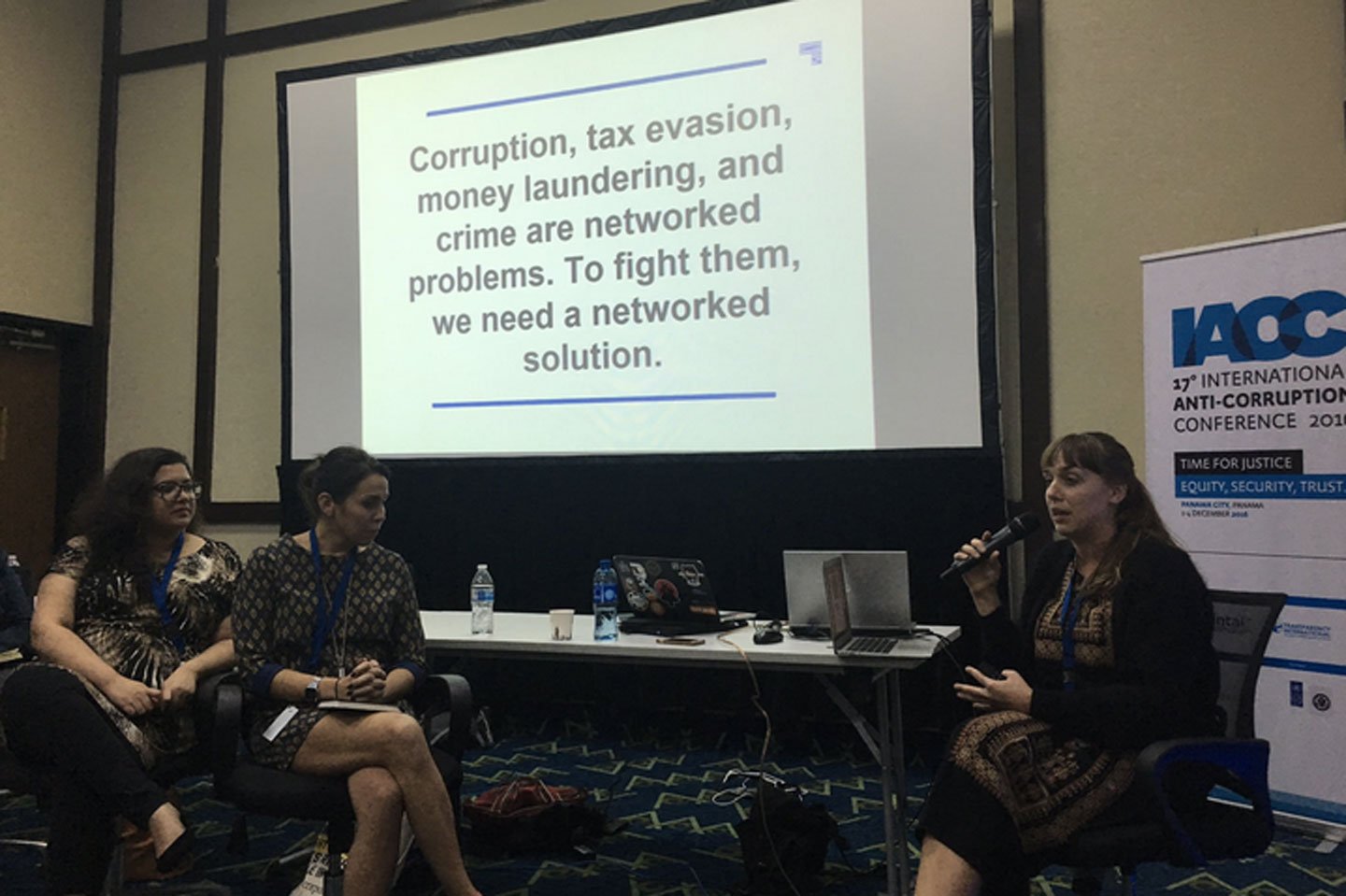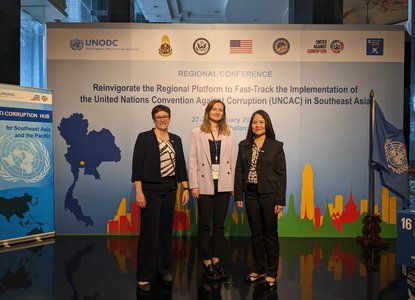What I learned from you at #17IACC and #OGP16

Representing Open Ownership at both the International Anti-Corruption Conference and the Open Government Partnership Summit was an inspiring way to debut our project to build a global, linked register of beneficial ownership.
Hands down, the best part of the conferences was speaking to many of you about your needs, hopes, and dreams for the Open Ownership Register. Here are the three main things I learned from you:
1. Beneficial ownership information is critical to ending the shadow economy
Anonymous company ownership facilitates corruption, money laundering, and tax avoidance. The result is underfunded state services such as education and health care, emboldened criminal groups, or millions of dollars in damage from shoddy infrastructure built as a result of corrupt procurement practices. These are social costs that none of our communities can afford to bear.
This was a refrain threaded through a great many conversations at both conferences.
The more beneficial ownership information we can put out into the public sphere, and the more mechanisms we install to make reporting this information compulsory, the more we shift norms away from corporate opacity toward transparency. But beyond what the data represents, it has concrete utility as part of investigations, due diligence or procurement processes. And as Joseph Stiglitz and IACC speaker Mark Pieth argue in their recent report, it can be used to trace where money is hidden out of the sight of tax authorities or law enforcement.
Civil society, governments, and the private sector must recognise each other’s common interest in having access to beneficial ownership data, and work together to bring this information into the light of public scrutiny. Not only is this in the public interest, it also ensures more accurate, more useful data.
Which brings us neatly to our next point.
2. Data quality is key
Whether you’re an investigative journalist in the Ukraine or a compliance officer at a major multinational corporation, the beneficial ownership information you use must be accurate so that you can provide the public or your bosses with useful insights. At Open Ownership, we believe that making beneficial ownership data public and available as structured data is the key to data quality – and key decision makers are beginning to agree.
A recent dive into the UK’s beneficial ownership data by Global Witness, DataKind UK and OpenCorporates provided a clear illustration of how data openness increases data quality. Some of the issues they discovered address technical issues of data collection, such as the multitude (over 500!) ways of writing one’s nationality as “British”, solvable by adding a drop-down menu of limited, and correctly spelled, choices to the form.
Others cut to the heart of why this information is being collected in the first place. They discovered 76 instances where the name and birthdate of a beneficial owner matched that of someone on the U.S. sanctions list, as well as almost 3,000 instances where the beneficial owner reported was a company registered in a tax haven – something not allowed in the rules. These findings, as well as those on data quality, were passed on to UK’s Companies House for further investigation.
This is just one example of how opening beneficial ownership data can ensure that instances of wrongdoing rise to the surface. Openness has other, consistent effects on data quality, because making data accessible and free increases engagement with the data. The more people use the data, the more they will discover issues that would have otherwise remained buried under vast amounts of information. Likewise, providing this information as structured data, thus making it possible to compare it with other datasets, will throw up inconsistencies in the way people report information about their companies.
The ultimate effect is better data quality, and a strong deterrent factor for those individuals who prefer to remain hidden. When beneficial ownership information is out in the public sphere for anyone to use, it becomes much riskier to lie.
3. There is strong and widespread need for Open Ownership’s open data standard for beneficial ownership

Over the past few years, the Extractive Industries Transparency Initiative has published data from their pioneering pilot program to collect information on the beneficial ownership of extractives companies operating in member countries, leaving the decision about how to collect that information up to the countries themselves. The data is fascinating, not least because it shows that there are many ways to represent beneficial ownership information*. Often, decisions around conceptual or technical issues in the collection of data become major stumbling blocks for countries committed to publishing such information.
Additionally, without a standard to work from, the data collected will be of varying utility and quality, and may not be interoperable with other beneficial ownership data sets. This makes it less easy to track illicit flows, which by their nature flow through several overlapping companies set up in multiple jurisdictions.
Many countries have already committed to publishing registers of beneficial ownership. Among them are Denmark, France, Norway, the Netherlands, Afghanistan, Kenya, Nigeria, and Germany. The availability of the data standard will support those countries already doing the work on beneficial ownership transparency, and will help advocates in other countries make the argument for it.
If you’re someone making these choices or these arguments, sign up to join our data standard working group. Joining will ensure that you’re up-to-date on the development of our standard, and that you’re able to feed into that development yourself.
As we continue to develop our register, we’ll be integrating these insights and we’re eager to learn more. Join one of our working groups today to help build a register that truly works for you, or sign up to our mailing list to be part of our milestones.
*For the record, we are in the process of standardising this information and it will be some of the first available on our Register when it launches in March 2017.
Related articles and publications
Publication type
Blog post
Topics
Open Ownership Register


